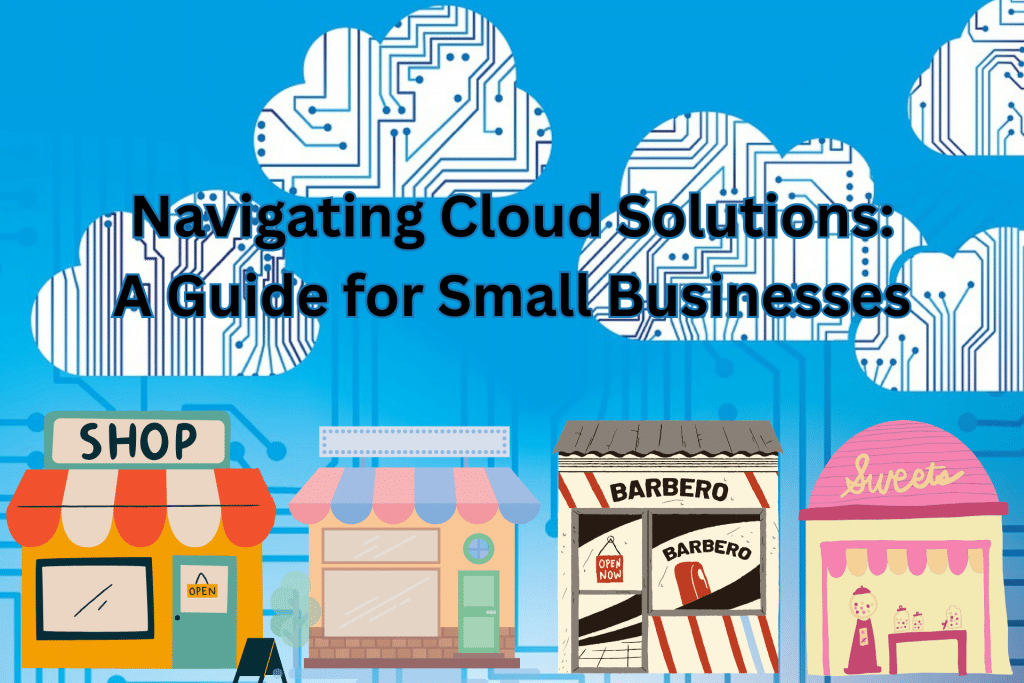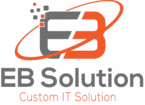Technology continues to evolve at an unprecedented pace. For small businesses, keeping up with this can be overwhelming. One of the recent tools that are used by companies is cloud solutions. These are said to be flexible, efficient, and secure means to store business data. Yet most business owners still do not know where to begin. Hence, a reliable managed IT services provider shares some details to make it easier to understand what cloud computing is all about. Thereby showing the advantages that justify the importance of having the correct small business IT solutions to foster business growth and longevity.

Small Business IT Solutions
What Does the Cloud Do in Small Business IT Solutions?
Cloud computing is used in small business IT solutions to relocate computing, storage, and applications. This means that your business does not need to run everything out of onsite servers on physical devices. Instead, all the information is secured on online platforms. All these are either private, public, or hybrid systems based on your needs. For small businesses, the transition removes unnecessary expensive equipment and technical maintenance. Moreover, cloud services are scaled readily. As a result, you only pay for what your business needs during different seasons or market conditions
Why Small Businesses Should Care
Having the right technology is important to every company, regardless of its size. Additionally, any downtime, regardless of how short, may get in the way of daily operations. This may affect retrieving customer records, orders, or missing email from a supplier. Having a cloud-based system though a trusted small business IT solutions provider helps your company become more dependable and available at a reasonable cost. Simply put, cloud adoption is a way of balancing the game. The tools that were previously only accessible to large organizations can now be acquired by smaller organizations.
Key Benefits of Cloud Solutions
- Cost Savings
It is costly to purchase, build, and maintain in-house servers and the personnel to maintain your own small business IT solutions. On the other hand, by utilizing cloud services, you redirect these expenses to a predictable charge per month instead. Therefore, saving on the cost of hardware, power, maintenance, and upgrades.
- Scalability and Flexibility.
When your company grows, your IT needs to grow too. Having cloud services means you can expand or contract without the need to purchase or sell anything. Your system simply adjusts in real-time, whether it is adding seasonal workers or going on a bigger scale.
- Strong Security
Cyber threats are a concern to many small business owners. By having cloud providers, your business also takes advantage of the high levels of security, such as encryption, firewalls, and 24/7 surveillance that these cloud system providers offer. Such safeguards tend to be more powerful than the majority of small teams can afford to have.
- Remote Access
In an age where work is no longer confined in one office, remote access is essential. With this, you and your staff are able to access files and applications regardless of your physical location with the cloud. This provides flexibility to work remotely and also business continuity in times of emergency.
- Reliability and Backup
Downtime from cybersecurity infiltration or crashing of the servers is a major concern for businesses. The loss of business data and customer information can be devastating to your operations. However, having cloud services as part of your small business IT solutions offers backup and disaster recovery to cushion such issues. This ensures your business stays functional despite partial system failures.
Different Cloud Models
Public Cloud
Public cloud services are those run by large tech corporations such as Microsoft Azure or Google Cloud. These contain the resources of various businesses and because they have large capacity, can offer cheap and scalable cloud packages.
Private Cloud
The use of private clouds is concentrated on a single organization. Because this needs its own hardware and personnel to create and maintain operations, they can be more expensive. However, because it is private and small in scale, it can be more customizable, and control-oriented.
Hybrid Cloud
The hybrid system is not becoming popular among the small business IT solutions. This combines the private and the public. Hence, companies can retain sensitive information safely and use publicly accessible resources to perform less important tasks.
Choosing the Right Cloud for Your Business
The choice of the appropriate model is based on budget, industry, regulations, and growth plans. For example, a startup might prefer the use of public cloud to minimize expenses. On the other hand, law firms that handle confidential files may be best to use a private cloud instead. In another case, a retail company can utilize a hybrid to attain flexibility and security. This means that a thorough assessment of your objectives should be done before taking action is a sure way of a smooth transition.
Common Misconceptions About Cloud Solutions
“The Cloud Isn’t Secure”
Most fear that data in cloud systems are at risk because it is in a foreign location. However, in practice, the majority of cloud providers spend a lot of money on cybersecurity precisely because they acknowledge this risk. Because they are not complacent on this, it means they ensure that their measures are more secure than the in-house systems.
“Cloud Is Too Complex”
The fact that it seems out of reach can also be translated as difficult for some. However, cloud adoption is easier than ever as platforms now ensure that they are user-friendly. When you have the right partner handling your small business IT solutions, set up and migration becomes very easy.
“Only Large Companies Benefit”
On the contrary, cloud technology equalizes the playing field. This is because it makes high-tech small business IT solutions cost-effective and reachable for small and medium-sized companies.
How to Get Started with Cloud Adoption
The migration to the cloud does not necessarily need to be daunting. To begin, you must evaluate your needs and identify which workloads will be the most helpful. After which, you can establish your monthly budget and select a provider with a good track record in security and customer support. Once you have your provider, they will plan with you on how to go about the migration process and training of your team.
Partnering with Experts in Small Business IT Solutions is Imperative
Cloud migration needs a plan. With a lack of expertise, businesses may lose their data or turn it the wrong way up. Professional support can help with that, such as that offered by EB Solution. Here at EB Solution, small businesses in Canada go through the entire process of cloud adoption with ease and confidence as we make it easier and eliminate the guesswork.
